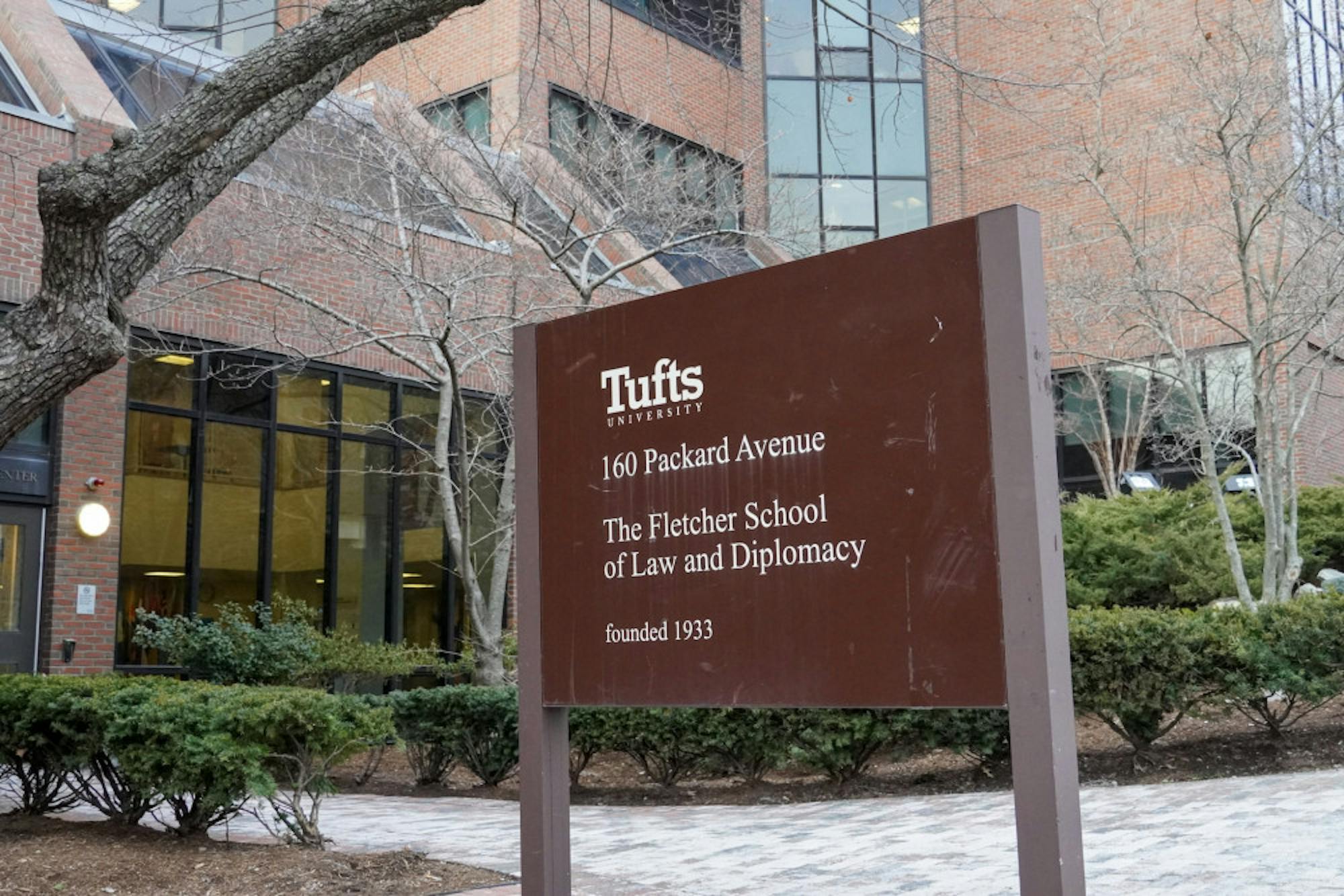Tufts University Executive Vice President Mike Howard discussed divestment from Russian securities — which currently amount to $5.7 million out of the approximately $2.5 billion in Tufts’ endowment — at a special session of the University Faculty Senate on March 23. Howard said that fully divesting from these securities would be “too risky for the endowment,” but that the university is working with its investment managers, who are seeking to minimize their funds’ exposure to Russian money.
The Faculty Senate convened the special session as part of its response to the Russia-Ukraine war. Other universities around the country, including the University of Michigan and the University of Colorado, have moved to limit or completely exit their investments in Russian securities in the weeks since the war began.
Howard explained the university’s financial relationship with Russia in a written statement to the Daily.
“The university endowment has no direct Russian exposure and we do not intend to have any,” Howard wrote. “As of 2/28, 0.2% of the endowment had indirect Russian exposure through 3rd party managers of commingled funds in which multiple investors hold a share of an investment. However, we have spoken with all of the managers of the commingled investments in question and all are seeking to reduce and/or eliminate their exposure.”
During the March 23 meeting, Howard explained that commingled funds, which represent the majority of Tufts’ financial investments, are managed by third-party investment managers. This means that Tufts cannot unilaterally end investment in Russian securities without withdrawing from those funds entirely. Howard said that four of the 80–100 commingled funds in the university’s investment portfolio currently contain Russian securities.
Oxana Shevel, a professor of political science who is from Ukraine, expressed concern over the university’s continued financial ties with Russia during the meeting.
“I think given what Russia is doing in Ukraine, I just don’t think there is any way to delay or kind of maybe do it [or] maybe not do it,” Shevel said. “[With] the war crimes they’re committing, I don’t think we should hold any money at all in any of the Russian securities.”
Howard explained that unilateral divestment from Russian securities would jeopardize Tufts’ endowment.
“To leave those four funds [that contain investment in Russian securities] wouldn’t just be divesting of the $5.7 million in Russian securities. It would be divesting over $200 million in investments because the Russian securities are only small parts of the four funds that we own,” he said. “Obviously, that’s a more substantial investment action to take, so we’re not doing that. That would be too risky for the endowment.”
Nevertheless, Howard said that Tufts hopes to limit its investment in Russian securities.
“It’s certainly the view of our investment office that we would like to reduce and eliminate our exposure to Russian securities at this point, and we are having active conversations with our investment managers to understand their plans in that regard,” Howard said. “[We are] encouraging them to reduce their exposures. … I suspect the numbers will go down over the next month and beyond. … We can’t guarantee that it will be 100% eliminated, … but I expect it will continue to decline beyond the $5.7 million.”
While he hopes to address the matter through private conversations with Tufts’ investment managers, Howard acknowledged that communal pressure could lead the university to reconsider its approach.
“If there was a strong feeling by some in the community that … we needed, for social justice reasons, to have a policy statement that we don’t want to invest in any Russian securities, that would trigger the Responsible Investment Advisory Group,” Howard said. “So that would be the process if a number of people in the community felt very strongly that we needed to somehow extricate ourselves from every tiny bit of Russian investment exposure, and then that would go through that deliberative process which takes some time.”
Jette Knudsen, Senate president and professor of policy and international business at The Fletcher School, urged university leadership to make its aspiration to eliminate the endowment’s exposure to Russian securities public.
“Given the small amount of Tufts’ endowment that’s in Russian securities, would it not be possible for Tufts leadership to come out and say that this is the case and this is sort of the goal [moving] forward?” Knudsen said.
Howard expressed support but also hesitation in response to Knudsen’s proposal.
“We typically don’t make public statements about particular investments in our endowment,” Howard said. “That’s just a policy that we have. I think really all large university investment offices have that [policy]. So that would be a new type of action that we haven’t taken before, but I’m being open about it.”
Henry Wortis, a faculty senator and professor of immunology at the Graduate School of Biomedical Sciences, acknowledged Howard’s concern but emphasized the value of taking such action.
“One point of clarity … [is] the fact that Tufts has no direct investment, and all our investments are indirect,” Wortis said. “If that was made public, that would be very helpful.”
In an email to the Daily, Howard confirmed that the university decided not to issue a public statement.
“Due to the fact that we have no direct exposure from which to divest and that our indirect exposure is minimal and expected to decline even further, a statement on Russian divestment was unnecessary,” Howard wrote.






